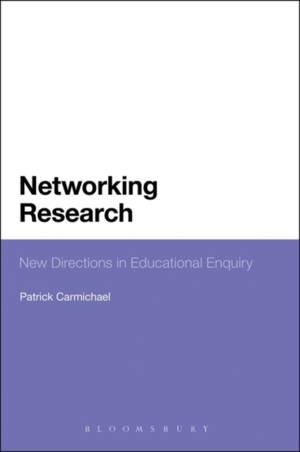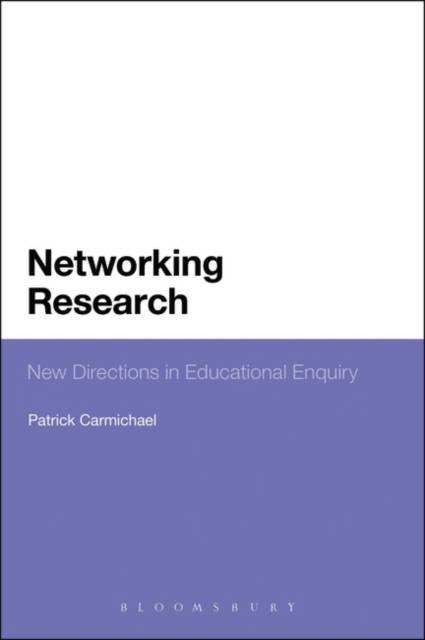
- Afhalen na 1 uur in een winkel met voorraad
- Gratis thuislevering in België vanaf € 30
- Ruim aanbod met 7 miljoen producten
- Afhalen na 1 uur in een winkel met voorraad
- Gratis thuislevering in België vanaf € 30
- Ruim aanbod met 7 miljoen producten
Zoeken
€ 89,95
+ 179 punten
Uitvoering
Omschrijving
The educational world is increasingly dominated by 'network rhetoric'; not only are teachers and learners seen as participants in networks, the availability of low-cost electronic devices, collaborative environments and new forms of data 'born digital' have changed the nature of education research.
How can researchers and research-informed practitioners best engage in and with networks and develop effective networking practices? How might networks and networking be conceptualized in order to frame and support their work in and on networks? How do networks relate to existing organizational forms and how might new networking practices emerge? This book draws on extensive research into educational research networks in schools, colleges and informal education settings to explore these questions. Carmichael combines theoretical insights into networks from different disciplinary backgrounds and awareness of technological developments, with the accounts of teachers, researchers, and technologists. He considers how educational research as a field is changing, how individual and collective research capacities might develop, identifies new research approaches and discusses the emerging role of the 'researcher-networker'.Specificaties
Betrokkenen
- Auteur(s):
- Uitgeverij:
Inhoud
- Aantal bladzijden:
- 196
- Taal:
- Engels
Eigenschappen
- Productcode (EAN):
- 9780567092199
- Verschijningsdatum:
- 28/02/2013
- Uitvoering:
- Paperback
- Formaat:
- Trade paperback (VS)
- Afmetingen:
- 156 mm x 234 mm
- Gewicht:
- 299 g

Alleen bij Standaard Boekhandel
+ 179 punten op je klantenkaart van Standaard Boekhandel
Beoordelingen
We publiceren alleen reviews die voldoen aan de voorwaarden voor reviews. Bekijk onze voorwaarden voor reviews.







